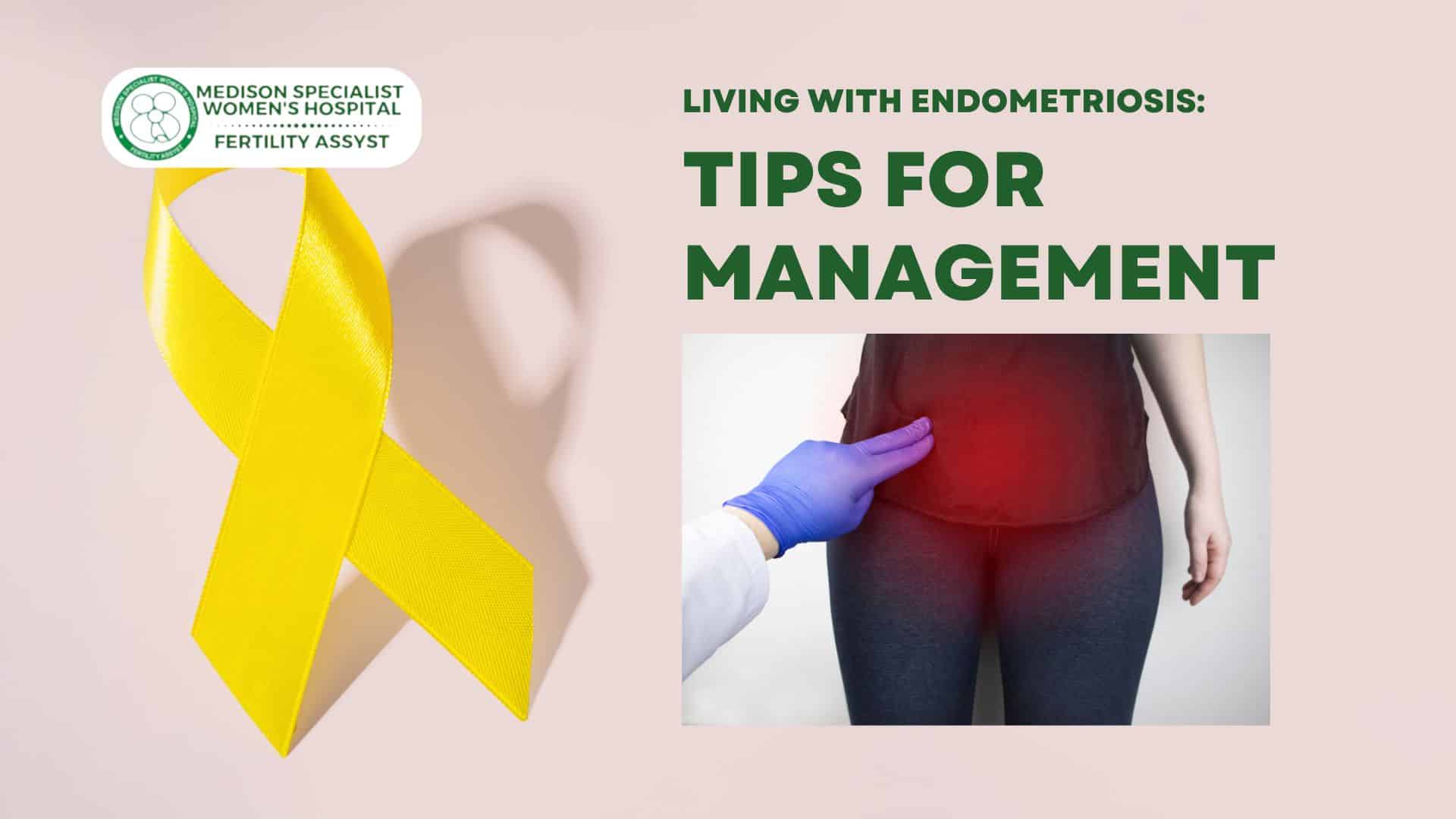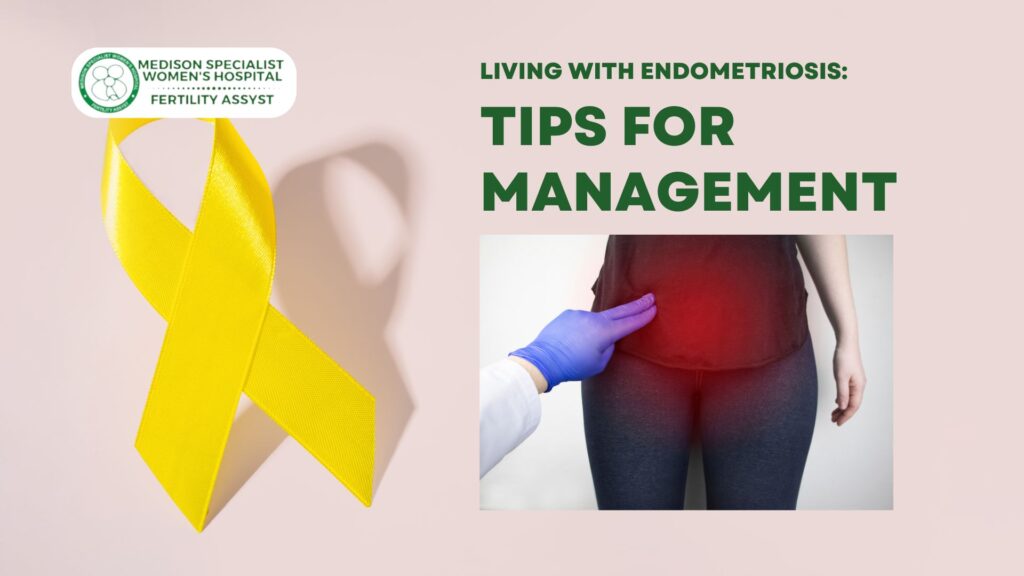Living with Endometriosis: Tips for Management
 Endometriosis, a condition where tissue similar to the uterine lining grows outside the uterus, can bring a wave of challenges. But you don’t have to face them alone. Here are some tips for managing endometriosis and taking charge of your well-being:
Endometriosis, a condition where tissue similar to the uterine lining grows outside the uterus, can bring a wave of challenges. But you don’t have to face them alone. Here are some tips for managing endometriosis and taking charge of your well-being:
1. Pain Management:
- Over-the-counter pain relievers: Start with readily available options like ibuprofen or naproxen to manage cramps and discomfort.
- Prescription pain medication: If over-the-counter medications aren’t enough, your doctor may prescribe stronger pain relievers.
- Heat therapy: Applying a heating pad or hot water bottle to your lower abdomen or back can help relax muscles and ease cramps.
2. Hormonal Therapy:
- Birth control pills: These medications can regulate your menstrual cycle, suppress ovulation, and slow the growth of endometrial tissue.
- Progestin therapy: Progestin can help reduce endometrial tissue growth and alleviate pain.
3. Dietary and Lifestyle Changes:
- Diet: Consider an anti-inflammatory diet rich in fruits, vegetables, and whole grains. Limiting red meat, processed foods, and refined sugars may also be beneficial.
- Exercise: Regular physical activity can improve mood, reduce pain, and boost overall well-being. Choose low-impact exercises like walking, swimming, or yoga.
- Stress management: Chronic stress can exacerbate endometriosis symptoms. Explore relaxation techniques like meditation, deep breathing exercises, or spending time in nature.
4. Complementary Therapies:
- Acupuncture: This traditional Chinese medicine practice involves inserting thin needles into specific points on the body. Studies suggest it may offer pain relief for some women with endometriosis.
- Massage therapy: Massage can help relax muscles, improve circulation, and reduce pain.
- Pelvic floor physical therapy: A physical therapist can teach you exercises to strengthen the muscles that support your pelvic organs, potentially reducing pain and improving bladder and bowel control.
5. Support Network:
- Connect with others: Talking to women who understand what you’re going through can be incredibly helpful. Consider joining a support group or online community for encouragement and shared experiences.
- Open communication with your doctor: Be honest and open with your doctor about your symptoms and the impact they have on your life. Working together, you can develop a personalized treatment plan that effectively manages your endometriosis.Remember, there’s no one-size-fits-all approach to managing endometriosis. Experiment and find what works best for you. By taking a proactive approach and incorporating these tips into your routine, you can gain control of your endometriosis and live a fulfilling life.
The Medison Hospital is committed to supporting women with endometriosis. We offer comprehensive diagnostic services and a variety of treatment options. Contact us today to schedule an appointment.

